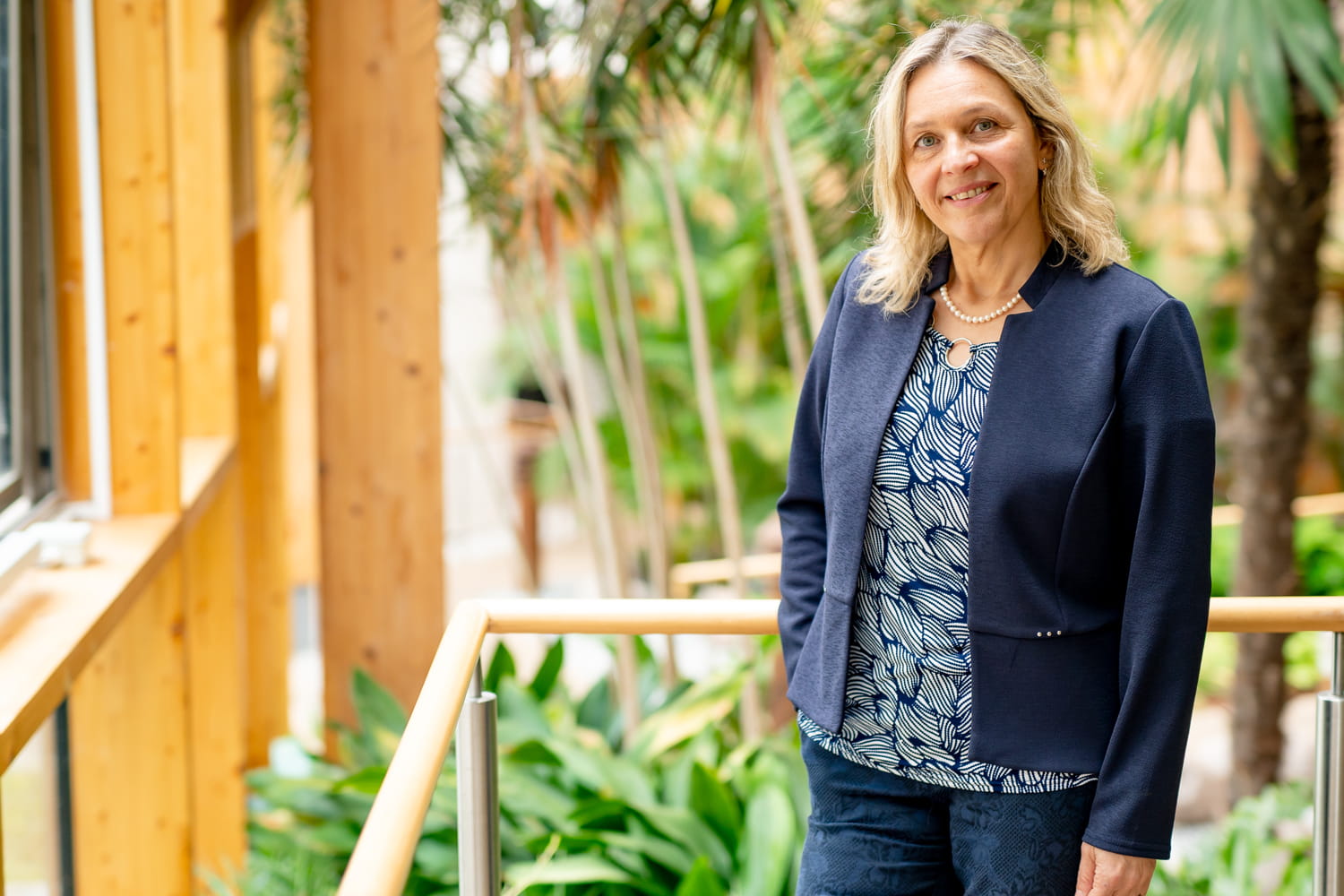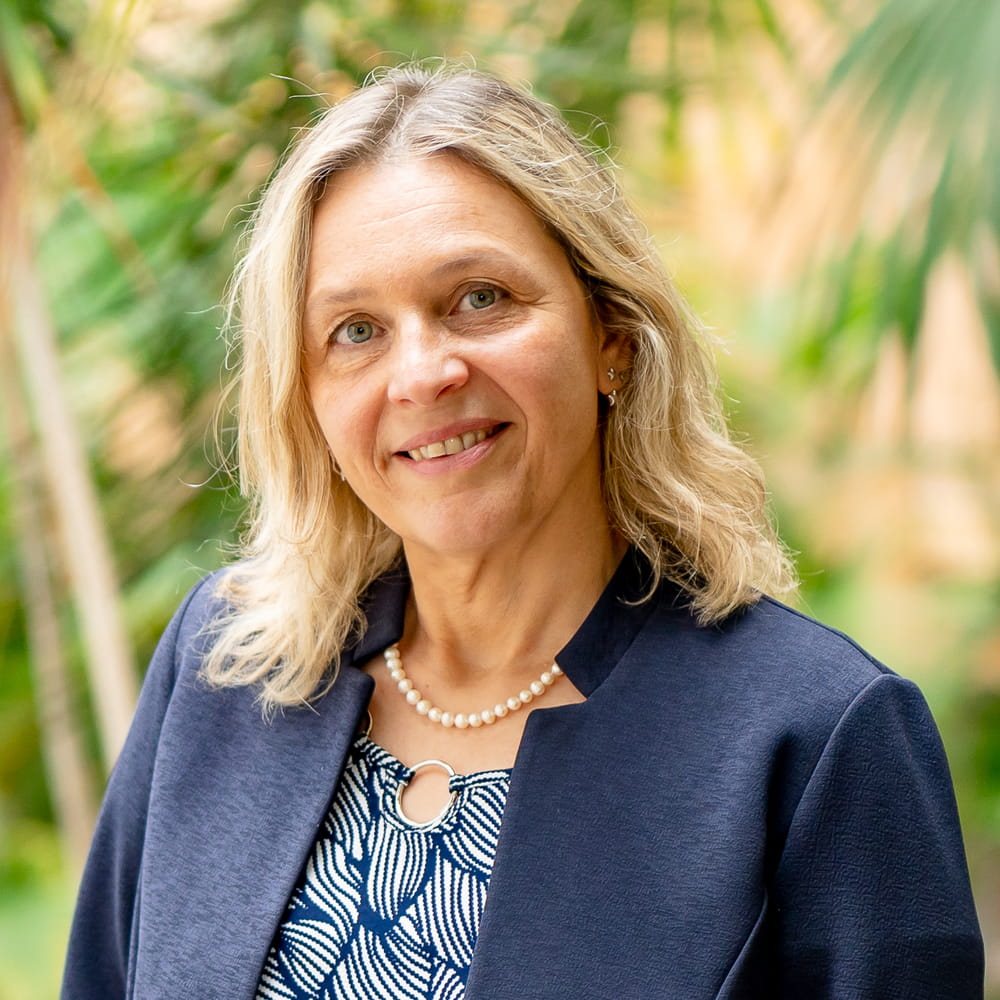We caught up with Professor Claudia Girardone to discuss her new role as Dean of Essex Business School (EBS).

Congratulations on your appointment as Dean.
How has the world of banking changed over your career, and what is it about this area of research that drew you in?
The world of banking has changed considerably over my career. In the early 2000s the banking sectors in many developed countries were being liberalised, and banks became increasingly more market-oriented. The global financial crisis in 2007-08 has exposed the risks of the deregulation and the need for a change in culture in banking and finance. In addition, the intensification of the climate and environmental crisis has revealed the urgent need for action on a global scale. Policy-makers have started to recognise the crucial role of banks in financing sustainable growth, as they can decide to channel more funds towards sustainable projects.
At the start of my academic career, my research interest was mostly focused on financial performance and on the importance of banks’ productivity and efficiency. Now my research interests have increasingly focused on the banking sector stability and resilience, ESG (environmental, social & governance) ratings, access to finance and financial inclusion.
Essex Business School’s mission is to champion responsible, ethical, and sustainable business. As well as Professor of Banking and Finance and Director of the Essex Finance Centre, you are an Academic Fellow at the Centre for Responsible Banking at the University of St Andrews.
How would you describe the School and how has it supported you in your research?
I would describe EBS as a ‘socially conscious university business school’ characterised by a collaborative spirit, a supportive environment and a significant engagement with the community.
In my 19 years here, I have seen EBS grow from a relatively small department to where we are today with five subject groups and over 130 academics. I started as a Junior Lecturer, known as Early Career Researchers these days, and then progressed to Senior Lecturer and Reader before becoming full Professor around 9 years ago.
Alongside my research and teaching, I have taken on a number of roles. Over the past 6 years, as Director of Research, I led on the Research Excellence Framework 2021 submission. I am pleased to say that Essex Business School is ranked 20th in the UK for research power in business and management (Times Higher Education research power measure, Research Excellence Framework 2021).
As Director of Essex Finance Centre, I have been involved in the organisation of successful conferences and workshops attracting top academics and industry speakers from all over the world and I co-founded the EFiC Conference in Banking and Corporate Finance in 2016.
Essex Business School has supported me as a researcher in many ways, providing me with the flexibility I needed to maintain a good work-life balance. I have had sabbatical terms away from all teaching and admin duties every 2 years; had the resources such as data to carry out high-quality research, and received funding and indeed time to go to international events and build a strong research network.
The largest department at the University, EBS attracts students and academics from across the globe due to our world-class research and teaching. What should they be expecting to find when they join EBS?
Everyone studying with us should expect a transformative education and research excellence that has a positive impact on the economy and society in the context of a happy, stimulating and inclusive environment.
In other words, students and academics from across the globe will find in EBS high standards in research and teaching and collegiality, in an environment that respects work/life balance and recognises the importance of well-being.
What are your hopes for the future direction for the School?
During my time as Dean, I hope that EBS will continue to make a difference by delivering high standards in research, teaching, operations, and engagement with a “socially conscious ethos” that supports sustainable growth.
To me, this means a positive working and learning environment where everyone is valued and has opportunities to fulfil their potential. It also means a School that fosters relationships with the community, encouraging and developing business and social outreach activities.
In a nutshell, I hope for a university business school with a purpose and a commitment to sustainability that makes a positive long-term impact on the economy and society.
Where would you like to take it in your time as Dean? What are the opportunities?
We have a great responsibility because our students are the next generation of leaders of organisations that will be managing people and resources and we want to prepare them to be “responsibly successful” in whatever they will be involved in.
I think as a business school we have an opportunity, as well as an obligation, to deliver a sense of purpose. We recognise the importance and role of business and management in tackling some of the world’s grand challenges. I think EBS has massive potential in terms of purposeful activities, so one of my objectives will be to put purpose at the heart of our operations.
You are our first female Dean and one of only a handful in the UK. Is it important that women are seen in positions of leadership? What do you think this appointment means for EBS and the students, and what would be your message to students?
I am delighted and privileged to be the first female Dean of Essex Business School. It is certainly a big step that means a lot to me because we value diversity and inclusion and no doubt my appointment signals EBS’s commitment to gender equality.
My message to students is that with us they will find a School that will help them unlock their potential and support their learning so they can contribute positively to the economy and society, both in their time with us and then taking our ethos out into society where they will become the business leaders of the future.


